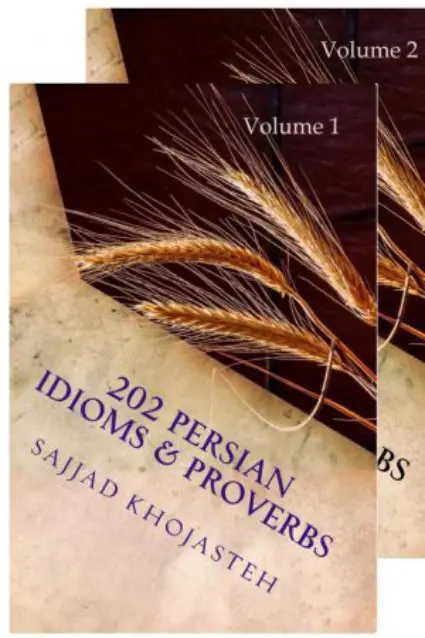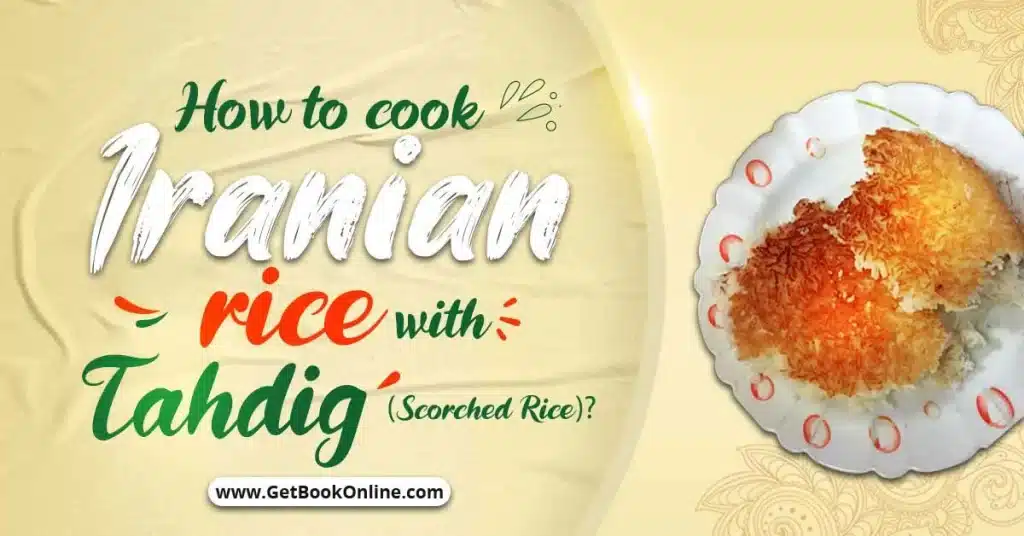Update Date: December 17, 2024
Do you want to learn some fun and meaningful Iranian proverbs that include animals’ names? You’ve come to the right place! In this post, the GetBookOnline.com team of native Persian teachers, who are passionate about helping you learn Persian, will introduce you to 7 top Iranian proverbs with animals’ name.
Proverbs are short, wise sayings that give advice or express a universal truth. They are a key part of any language, and Persian is no exception. Learning these proverbs will not only improve your Persian skills but also give you insight into Persian culture, humor, and way of thinking.
Persian proverbs often use animals to create powerful and relatable images. From pigeons to clever foxes, each animal represents an idea or lesson. These sayings are simple, yet they carry deep meaning, and they are often used in daily conversations. Whether you’re a beginner or an advanced Persian learner, these proverbs will help you connect better with the language and its people.
At GetBookOnline.com, we believe learning Persian should be fun and easy. That’s why our native Persian teachers carefully selected these 7 proverbs for you. Each one comes with its meaning and usage explained in a simple way so you can understand and remember them easily.
So, are you ready to discover some of the most popular and interesting Persian proverbs with animals’ names? Let’s get started and add a touch of wisdom (and a little fun!) to your Persian learning journey!
kabootar bā kabootar bāz bā āz کبوتر با کبوتر باز با باز
The Persian proverb “Kabootar ba Kabootar, Baz ba Baz” translates to “pigeon with pigeon, hawk with hawk,” and it conveys the idea that “birds of a feather flock together.” This proverb emphasizes the tendency for individuals with similar characteristics, interests, or backgrounds to associate and form social groups.
The phrase suggests that like-minded individuals are naturally drawn to each other and tend to gather or form relationships based on their shared qualities or commonalities. Pigeons are often seen congregating with other pigeons, and hawks are typically found in the company of fellow hawks, reflecting the natural inclination for birds to associate with their own kind.
In a broader sense, this proverb extends beyond the literal interpretation of birds and applies to human behavior and social dynamics. It implies that individuals with similar values, beliefs, personalities, or interests tend to gravitate towards each other and form social bonds. This can be observed in various contexts, such as friendships, professional networks, or community affiliations.
The proverb highlights the idea that people find comfort, understanding, and a sense of belonging when surrounded by others who are similar to them. It suggests that shared values, experiences, or goals provide a foundation for connection and camaraderie.
However, it is important to note that this Persian proverb does not imply exclusivity or the complete absence of diversity. While individuals may naturally gather with those who are similar to them, it does not mean they are averse to interacting with individuals who are different. It simply reflects the tendency for people to seek out and form relationships with those who share commonalities.
saresh ro mesl-e kabk karde zir-e barf سرش رو مثل کبک کرده زیر برف
The phrase “saresh ro mesl-e kabk karde zir-e barf” is one of the most used Iranian proverbs that translates to “she hides her head under the snow” or “she buries her head in the sand.”
This proverb is metaphorical and is used to describe someone who deliberately ignores or avoids a problem, situation, or unpleasant truth. It draws a parallel with the behavior of an ostrich, which is believed to bury its head in the sand when it senses danger.
The imagery of hiding one’s head under the snow or burying it in the sand represents a willful act of denial or avoidance. It implies that instead of facing a challenging or uncomfortable reality, the person chooses to ignore it, hoping that by doing so, the problem will simply disappear.
However, just as an ostrich cannot truly hide from danger by burying its head in the sand, the proverb suggests that avoiding or denying a problem does not make it go away. In fact, it often exacerbates the issue, leading to further complications or consequences.
The proverb serves as a cautionary reminder about the importance of facing difficulties head-on, acknowledging reality, and taking proactive steps to address problems. It emphasizes the need for courage, honesty, and a willingness to confront challenging situations, rather than resorting to avoidance or denial.
By understanding the meaning behind “Saresh ro mesle kabk karde zire barf,” we can reflect on the significance of being proactive, addressing issues directly, and seeking practical solutions rather than turning a blind eye to the realities of life.
āb ke sar bālā mire ghoorbāgheh aboo atā mikhooneh آب که سربالا میره قورباغه ابوعطا میخونه
The phrase “āb ke sar bālā mire ghoorbāgheh aboo atā mikhooneh” is an Iranian proverb that translates to “When water flows uphill, frogs sing Abu Ata.” This proverb is used to express extreme skepticism or to convey the idea that something is highly unlikely or impossible.
The image of water flowing uphill is a clear violation of the laws of nature, as water naturally flows downhill due to gravity. Likewise, the idea of frogs singing Abu Ata, a humorous and nonsensical phrase, further emphasizes the absurdity of the situation.
By using this proverb, Iranians convey the notion that the event or circumstance being discussed is so improbable that it is comparable to water defying gravity or frogs singing an impossible melody. In essence, it is an expression of disbelief or incredulity.
The phrase “Ab ke sar bala mire ghoorbagheh Abu Ata mikhooneh” serves as a lighthearted way to highlight the implausibility of a situation, often used in a playful or sarcastic manner. It is akin to the English expression “pigs might fly,” which is used to convey a similar sense of incredulity.
So, when Iranians invoke this proverb, they are essentially saying that the likelihood of the described event occurring is so remote that it is as improbable as water flowing uphill or frogs singing Abu Ata. It serves as a colorful and humorous way to express skepticism and dismiss the possibility of something happening.
angoor-e khoob nasib-e shoghāl mishe انگور خوب نصیب شغال میشه
The phrase “angoor-e khoob nasib-e shoghāl mishe” is another Iranian proverb that translates to “the good grapes are given to the jackal.” This proverb is used to express the idea that some people seem to have all the luck or good fortune, while others are left with less desirable outcomes.
In the context of the proverb, the image of “good grapes” represents something desirable or valuable, while the “jackal” symbolizes someone who is cunning or opportunistic. The proverb suggests that in certain situations, those who are crafty or manipulative are often the ones who end up benefiting or receiving the best opportunities.
By using this proverb, Iranians comment on the unequal distribution of luck or favorable circumstances in life. It implies that sometimes, the individuals who are less deserving or morally questionable are the ones who seem to consistently come out on top.
The phrase serves as a reflection of the frustration or resignation one may feel when witnessing instances of unfairness or favoritism. It captures the sentiment that life isn’t always just or equitable and that some people seem to consistently have the upper hand.
So, when Iranians invoke this proverb, they are expressing the observation that certain individuals seem to consistently enjoy good fortune or favorable outcomes, even if they don’t necessarily deserve them. It serves as a commentary on the uneven distribution of luck and success in life.
ashk-e temsāh mirizeh اشک تمساح میریزه
The phrase “ashk-e temsāh mirizeh” is among the common Iranian proverbs that translates to “shedding crocodile tears.” This proverb is used to describe insincere or hypocritical displays of sadness or remorse.
The image of a crocodile shedding tears is symbolic of a deceptive act. While crocodiles are known for their aggressive and predatory nature, they are not capable of genuine emotions such as sorrow or remorse. Therefore, when someone is said to be “shedding crocodile tears,” it implies that their display of sadness or sympathy is not genuine but rather a calculated act intended to deceive or manipulate others.
By using this proverb, Iranians comment on the hypocrisy or insincerity of someone’s emotional expressions. It suggests that the person in question is feigning sorrow or remorse for personal gain or to create a false impression.
The phrase serves as a reminder to be cautious and discerning when assessing the sincerity of someone’s emotions or intentions. It is a subtle way to convey skepticism or doubt about the authenticity of another person’s displays of sorrow or sympathy.
So, when Iranians invoke this proverb, they are essentially drawing attention to someone’s insincere or hypocritical behavior, particularly when it comes to showing emotions. It serves as a cautionary reminder to remain vigilant and not be easily swayed by false displays of sentiment.
az khar-e sheitān biā pāein از خر شیطان بیا پایین
The phrase “az khar-e sheitān biā pāein” is an Iranian proverb that translates to “get off from the devil’s horse” or “get down off a high horse.” This proverb is used to advise someone to abandon an arrogant or superior attitude and adopt a more humble and down-to-earth demeanor.
In the proverb, the “devil’s horse” or “high horse” represents a metaphorical position of arrogance or self-importance. It implies that the person being addressed has developed an inflated sense of superiority or pride, which may lead to negative consequences.
By using this proverb, Iranians encourage individuals to recognize and rectify their haughty behavior. It serves as a gentle reminder to be humble, grounded, and approachable, rather than looking down on others or acting in a condescending manner.
The phrase “az khar-e sheitān biā pāein” highlights the importance of humility and self-awareness, reminding us that arrogance can alienate others and hinder personal growth. It suggests that stepping down from a position of perceived superiority allows for better understanding, empathy, and harmonious relationships.
morgh-e hamsāyeh ghāze مرغ همسایه غازه
The phrase “morgh-e hamsāyeh ghāze” is an Iranian proverb that literally translates to “the neighbor’s chicken is a goose.” This proverb is used to convey the idea that what others possess or experience often appears more desirable or superior compared to our own circumstances.
In the proverb, the “neighbor’s chicken” represents something seemingly ordinary, while the “goose” symbolizes something grand or superior. The phrase suggests that people tend to perceive what others have as more valuable or attractive, even if it may not be objectively true.
By using this proverb, Iranians comment on the human tendency to idealize or covet what we perceive as belonging to others. It implies that we often overlook the flaws or challenges associated with something when viewing it from a distance or through the lens of envy.
The phrase serves as a reminder to be mindful of our own blessings and to avoid comparing our lives unfavorably to those of others. It encourages contentment and gratitude for what we have, rather than constantly longing for what appears better in someone else’s possession.
So, when Iranians invoke this proverb, they are essentially highlighting the tendency to perceive others’ circumstances as more desirable or advantageous. It serves as a gentle reminder to appreciate and make the most of our own blessings, rather than constantly yearning for what we perceive as superior in others’ lives.
Iranian Proverbs and the Path to Wisdom

Start a captivating journey through the profound wisdom of Iranian proverbs. These concise and insightful expressions have illuminated the lives of Iranians for centuries, offering timeless lessons and cultural insights. If you’re intrigued by the power of words and the depth of traditional wisdom, Iranian proverbs are a treasure trove waiting to be discovered.
At GetBookOnline.com, we are delighted to announce one of our helpful books entitled Persian Idioms and Proverbs. This book delves into the rich tapestry of Iranian proverbs, exploring their meanings, origins, and the values they embody. It is a comprehensive guide that invites readers to unravel the essence of Iranian culture and gain a deeper understanding of its people.
Each page of the book unveils a unique proverb, accompanied by its English translation and a vivid explanation of its significance. Whether you are a language enthusiast, a cultural explorer, or simply someone seeking wisdom to enrich your life, this book is an invaluable companion.
If you’re eager to immerse yourself in the enchanting world of Iranian proverbs, our book is now available for purchase at leading bookstores and online retailers. Let these poetic and thought-provoking expressions unveil the secrets of Iranian culture and inspire your own journey towards wisdom.
To learn more about Iranian proverbs, their cultural context, or to explore the Persian language further, enjoy the book. Our team of Persian language experts is passionate about sharing the beauty of Iranian proverbs and assisting you on your quest for knowledge.
Enjoy the Wisdom and Insights from Iranian Proverbs
We hope this exploration of Iranian proverbs has provided you with a glimpse into the rich cultural heritage and wisdom of Iran. These proverbs embody the collective experiences, values, and observations of generations past, offering timeless insights that resonate across cultures.
If you have any lingering questions about Iranian proverbs or if you’re eager to delve deeper into the fascinating world of Persian language and culture, we invite you to reach out to us. Whether you’re seeking a deeper understanding of a specific proverb or wish to embark on a journey to learn the Persian language, we’re here to assist you.
At GetBookOnline.com, we’re passionate about promoting cross-cultural understanding and language learning. Our team of experts is dedicated to providing guidance, resources, and personalized support to help you explore the intricacies of Persian language and culture.
Don’t hesitate to contact us with your inquiries, curiosities, or aspirations. We’re thrilled to be your trusted companion on this enriching journey. Together, let’s unlock the profound wisdom and beauty of Iranian proverbs and the Persian language.
We look forward to hearing from you and embarking on this enlightening exploration together! We are excited to help you explore the fascinating world of Iranian proverbs and the beauty of the Persian language!
Frequently Asked Questions
Q: What are Iranian proverbs?
Iranian proverbs are concise and often metaphorical expressions that are passed down through generations and offer insights into various aspects of life, human behavior, and relationships.
What is the purpose of Iranian proverbs?
Iranian proverbs serve multiple purposes. They convey moral lessons, provide guidance for decision-making, and offer a collective wisdom that reflects the experiences and values of Iranians.
How are Iranian proverbs used in everyday life?
Iranian proverbs are integrated into daily conversations, storytelling, and informal communication. They may be used to illustrate a point, offer advice, or provide a different perspective on a situation.
What are some common themes in Iranian proverbs?
Iranian proverbs cover a wide range of themes, including love, friendship, wisdom, honesty, patience, perseverance, and the importance of family and community.
Are Iranian proverbs specific to the Persian language?
While Iranian proverbs originate from the Persian language, they often convey universal truths and can be appreciated and understood across cultures.
Can I learn Persian language through Iranian proverbs?
Iranian proverbs can be a valuable tool for learning the Persian language. They provide insights into the language’s syntax, idiomatic expressions, and cultural nuances.

